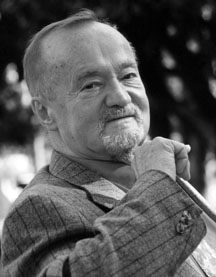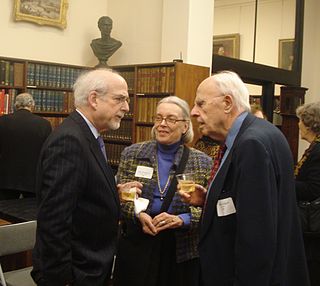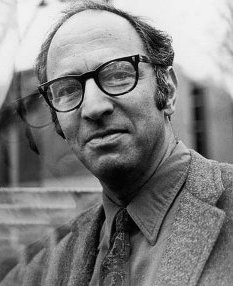Related Research Articles
Educational perennialism is a normative educational philosophy. Perennialists believe that the priority of education should be to teach principles that have persisted for centuries, not facts. Since people are human, one should teach first about humans, rather than machines or techniques, and about liberal, rather than vocational, topics.
Postmodern philosophy is a philosophical movement that arose in the second half of the 20th century as a critical response to assumptions allegedly present in modernist philosophical ideas regarding culture, identity, history, or language that were developed during the 18th-century Age of Enlightenment. Postmodernist thinkers developed concepts like difference, repetition, trace, and hyperreality to subvert "grand narratives", univocity of being, and epistemic certainty. Postmodern philosophy questions the importance of power relationships, personalization, and discourse in the "construction" of truth and world views. Many postmodernists appear to deny that an objective reality exists, and appear to deny that there are objective moral values.
Relativism is a family of philosophical views which deny claims to objectivity within a particular domain and assert that valuations in that domain are relative to the perspective of an observer or the context in which they are assessed. There are many different forms of relativism, with a great deal of variation in scope and differing degrees of controversy among them. Moral relativism encompasses the differences in moral judgments among people and cultures. Epistemic relativism holds that there are no absolute principles regarding normative belief, justification, or rationality, and that there are only relative ones. Alethic relativism is the doctrine that there are no absolute truths, i.e., that truth is always relative to some particular frame of reference, such as a language or a culture. Some forms of relativism also bear a resemblance to philosophical skepticism. Descriptive relativism seeks to describe the differences among cultures and people without evaluation, while normative relativism evaluates the word truthfulness of views within a given framework.

Humanities are academic disciplines that study aspects of human society and culture, including the fundamental questions asked by humans. During the Renaissance, the term 'humanities' referred to the study of classical literature and language, as opposed to the study of religion or 'divinity.' The study of the humanities was a key part of the secular curriculum in universities at the time. Today, the humanities are more frequently defined as any fields of study outside of natural sciences, social sciences, formal sciences, and applied sciences. They use methods that are primarily critical, or speculative, and have a significant historical element—as distinguished from the mainly empirical approaches of the natural sciences.

Richard McKay Rorty was an American philosopher. Educated at the University of Chicago and Yale University, he had strong interests and training in both the history of philosophy and in contemporary analytic philosophy. Rorty's academic career included appointments as the Stuart Professor of Philosophy at Princeton University, Kenan Professor of Humanities at the University of Virginia, and Professor of Comparative literature at Stanford University. Among his most influential books are Philosophy and the Mirror of Nature (1979), Consequences of Pragmatism (1982), and Contingency, Irony, and Solidarity (1989).

The National Endowment for the Humanities (NEH) is an independent federal agency of the U.S. government, established by the National Foundation on the Arts and the Humanities Act of 1965, dedicated to supporting research, education, preservation, and public programs in the humanities. The NEH is housed at 400 7th St SW, Washington, D.C. From 1979 to 2014, NEH was at 1100 Pennsylvania Avenue, N.W., Washington, D.C., in the Nancy Hanks Center at the Old Post Office.

Stephen Edelston Toulmin was a British philosopher, author, and educator. Influenced by Ludwig Wittgenstein, Toulmin devoted his works to the analysis of moral reasoning. Throughout his writings, he sought to develop practical arguments which can be used effectively in evaluating the ethics behind moral issues. His works were later found useful in the field of rhetoric for analyzing rhetorical arguments. The Toulmin model of argumentation, a diagram containing six interrelated components used for analyzing arguments, and published in his 1958 book The Uses of Argument, was considered his most influential work, particularly in the field of rhetoric and communication, and in computer science.
Neopragmatism, sometimes called post-Deweyan pragmatism, linguistic pragmatism, or analytic pragmatism, is the philosophical tradition that infers that the meaning of words is a result of how they are used, rather than the objects they represent.

Stephen John Brademas Jr. was an American politician and educator originally from Indiana. He served as Majority Whip of the United States House of Representatives for the Democratic Party from 1977 to 1981 at the conclusion of a twenty-year career as a member of the United States House of Representatives. In addition to his major legislative accomplishments, including much federal legislation pertaining to schools, arts, and the humanities, he served as the 13th president of New York University from 1981 to 1992, and was a member of and subsequently the chairman of the board of the Federal Reserve Bank of New York. In addition he was a board member of the New York Stock Exchange and the Rockefeller Foundation.
Charles Frankel was an American philosopher, Assistant U.S. Secretary of State, professor and founding director of the National Humanities Center.
Fred Feldman is an American philosopher who specializes in ethical theory. He is professor emeritus of philosophy at the University of Massachusetts Amherst, where he taught from 1969 until his retirement in 2013. His research primarily focuses on normative ethics, metaethics, the nature of happiness, and justice. He has long been fascinated by philosophical problems about the nature and value of death. He received a NEH research fellowship for the academic year of 2008/09; he received a Conti Faculty research fellowship for the academic year of 2013/14.
The University of Virginia College of Arts & Sciences is the largest of the University of Virginia's ten schools. Consisting of both a graduate and an undergraduate program, the College comprises the liberal arts and humanities section of the University.

Bruce Milan Cole was a longtime professor of art history at Indiana University, a Senior Fellow at the Ethics and Public Policy Center in Washington, D.C., a member of the Eisenhower Memorial Commission, and the eighth Chair of the National Endowment for the Humanities.
William Craig Rice was an American educator. He was the Director of the Division of Education Programs of the National Endowment for the Humanities.

Thomas Samuel Kuhn was an American historian and philosopher of science whose 1962 book The Structure of Scientific Revolutions was influential in both academic and popular circles, introducing the term paradigm shift, which has since become an English-language idiom.
Barnaby Conrad Keeney was president of Brown University from 1955 to 1966. He was known and loved by the student body for openness and his dry wit. As he once observed, "One of the joys of the life of an educator, particularly a president, is the amount of free advice he gets." Keeney then served as president of Claremont Graduate University from 1971 to 1976.

(Tseng) Hao Huang (黄俊豪) is a Hakka Chinese American concert pianist, published scholar, narrator, playwright, composer and the Bessie and Cecil Frankel Endowed Chair in Music at Scripps College.
Holly Martin Smith is Distinguished Professor of Philosophy at Rutgers, the State University of New Jersey. Her publications focus on questions in normative ethics, moral responsibility and structural questions common to normative theories.
Jamsheed K. Choksy is a Distinguished Professor, former Chair of the Department of Near Eastern Languages and Cultures, former Chair of the Department of Central Eurasian Studies, and current Director of the Inner Asian and Uralic National Resource Center at Indiana University - Bloomington. Choksy completed his undergraduate degree from Columbia University in 1985 and doctoral work at Harvard University in 1991 where he was elected a Junior Fellow (1987-1991). From there, he embarked on a career in academia, beginning as a Visiting Assistant Professor at Stanford University (1991-1993) and subsequently a tenure track professor at Indiana University in 1993, eventually holding appointments in a variety of different programs in that university. He has been a NEH Fellow and Member at the School of Historical Studies, Institute for Advanced Study in Princeton (1993-1994) and a Mellon Fellow at the Center for Advanced Study in the Behavioral Sciences, Palo Alto (2001-2002).

Jon Parrish Peede is an American book editor and literary review publisher, who served as the chairman of the National Endowment for the Humanities from 2018 to 2021.
References
- ↑ Adler, Mortimer J.; "A Guidebook to Learning: For the Lifelong Pursuit of Wisdom"
- ↑ Kuhn, Thomas, The Structure of Scientific Revolutions , The University of Chicago Press, 1962
- ↑ Rorty, Richard, Science as Solidarity, in Objectivity, Relativism and Truth: Philosophical Papers Volume I, Cambridge University Press, 1991
- ↑ Kernan, Alvin, editor; What's Happened to the Humanities?, Princeton University Press, Princeton, New Jersey, 1997
- ↑ www.neh.gov
- ↑ www.neh.gov
- ↑ The State of the Humanities 2018: Graduates in the Workforce & Beyond. Cambridge, Mass.: American Academy of Arts and Sciences. 2018. pp. 5–6, 12, 19.